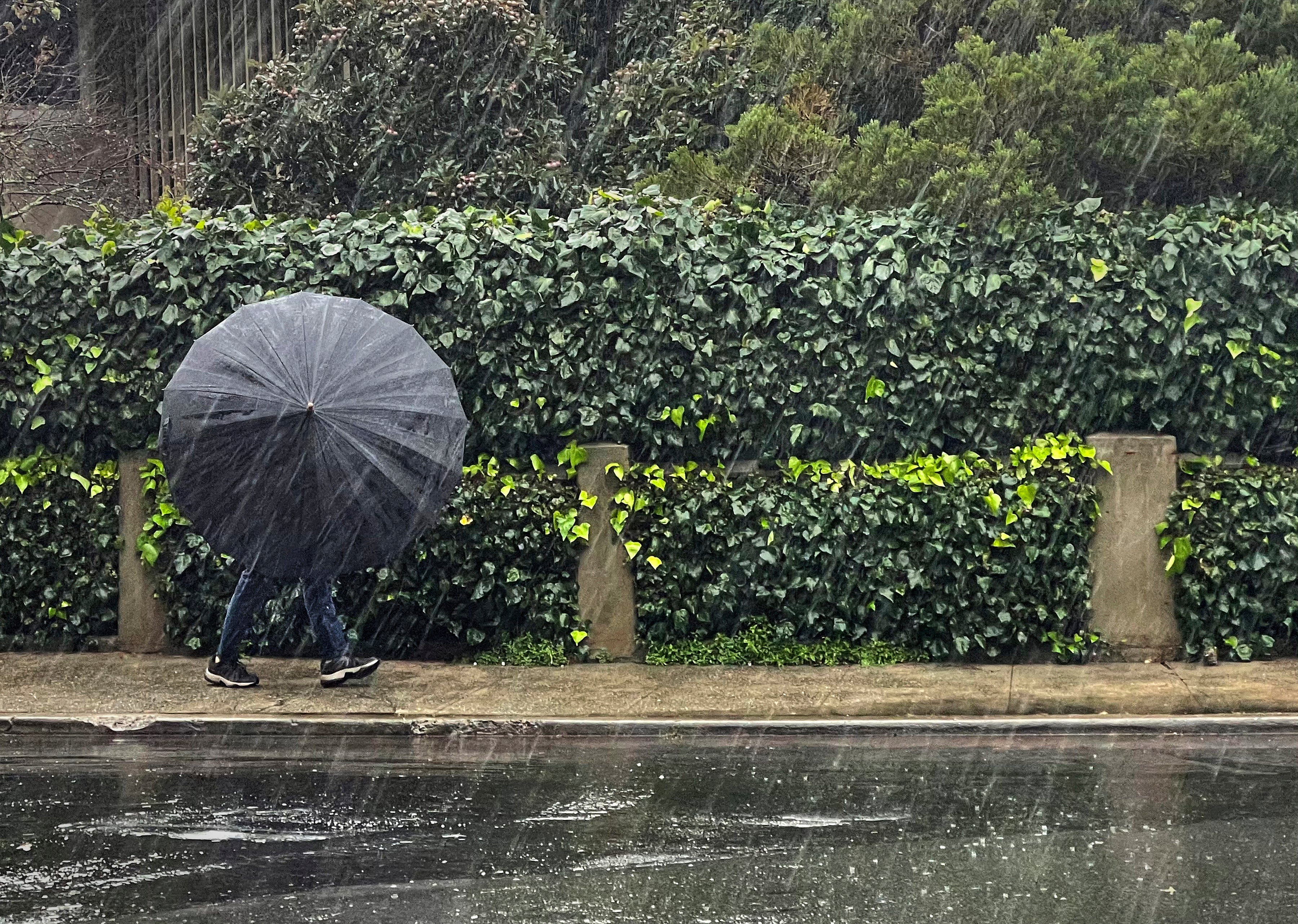Powerful storm drenches Southern California with heavy rain
Rain is drenching Southern California as a powerful storm slides down the state, snarling traffic and raising the threat of mudslides in areas scarred by wildfires

Your support helps us to tell the story
From reproductive rights to climate change to Big Tech, The Independent is on the ground when the story is developing. Whether it's investigating the financials of Elon Musk's pro-Trump PAC or producing our latest documentary, 'The A Word', which shines a light on the American women fighting for reproductive rights, we know how important it is to parse out the facts from the messaging.
At such a critical moment in US history, we need reporters on the ground. Your donation allows us to keep sending journalists to speak to both sides of the story.
The Independent is trusted by Americans across the entire political spectrum. And unlike many other quality news outlets, we choose not to lock Americans out of our reporting and analysis with paywalls. We believe quality journalism should be available to everyone, paid for by those who can afford it.
Your support makes all the difference.Rain drenched Southern California on Tuesday as a powerful storm slid down the state, snarling traffic as vehicles spun out and raising the threat of mudslides in areas scarred by wildfires.
Nearly 7 inches (18 centimeters) of rain fell before dawn in one area of Santa Barbara County northwest of Los Angeles the National Weather Service said.
Residents of communities near the Alisal Fire burn scar in Santa Barbara County were ordered Monday to evacuate over concerns that heavy rains might cause flooding and debris flows that could inundate hillside homes. A similar order was issued for people living in several communities near another burn scar in the San Bernardino Mountains east of Los Angeles.
Snow continued falling in the mountains of Northern California after it started coming down last weekend. Avalanche warnings were in effect in the Mono and Inyo county areas of the eastern Sierra Nevada.
Motorists spun out on whitened mountain passes and people outside wielded umbrellas that flopped in the face of fierce winds.
Near Lake Tahoe, the Kirkwood Mountain Resort ski area was closed Monday, saying on social media that it was not safe to open with 17 inches (43 centimeters) of overnight snow and high winds.
“It’s just so bad and so thick,” said California Highway Patrol Officer Carlos Perez “We’re telling people that if they don’t need to be around this area, they probably shouldn’t travel.”
The multiday storm, a powerful atmospheric river weather system that was sucking up moisture from the Pacific Ocean, was expected to dump more than 8 feet (2.4 meters) of snow on the highest peaks in California and Nevada.
The storm brought much-needed moisture to the broader region that’s been gripped by drought that scientists have said is caused by climate change. The latest U.S. drought monitor shows parts of Montana, Oregon, California, Nevada and Utah are classified as being in exceptional drought, which is the worst category.
Most western U.S. reservoirs that deliver water to states, cities, tribes, farmers and utilities rely on melted snow in the springtime.
The welcome rain didn’t stop Oakland resident and artist Zhenne Wood from walking her neighbor’s dog, a short-legged corgi.
“I decided to stay home today and not go anywhere, which is nice,” she said. “And I’m really happy for the rain. I think we needed it a lot.”
The storm prompted officials to shut down a 40-mile (64-kilometer) stretch of the iconic Highway 1 in California’s Big Sur area until Tuesday. The scenic coastal route south of the San Francisco Bay Area, frequently experiences damage during wet weather.
A second storm predicted to hit California midweek shortly after the current storm moves on could deliver almost continuous snow in mountainous areas, said Edan Weishahn of the weather service in Reno, which monitors an area straddling the Nevada state line.
___
Har reported from San Francisco. Associated Press writer Christopher Weber contributed from Los Angeles and Associated Press writer Terence Chea contributed from Oakland, California.